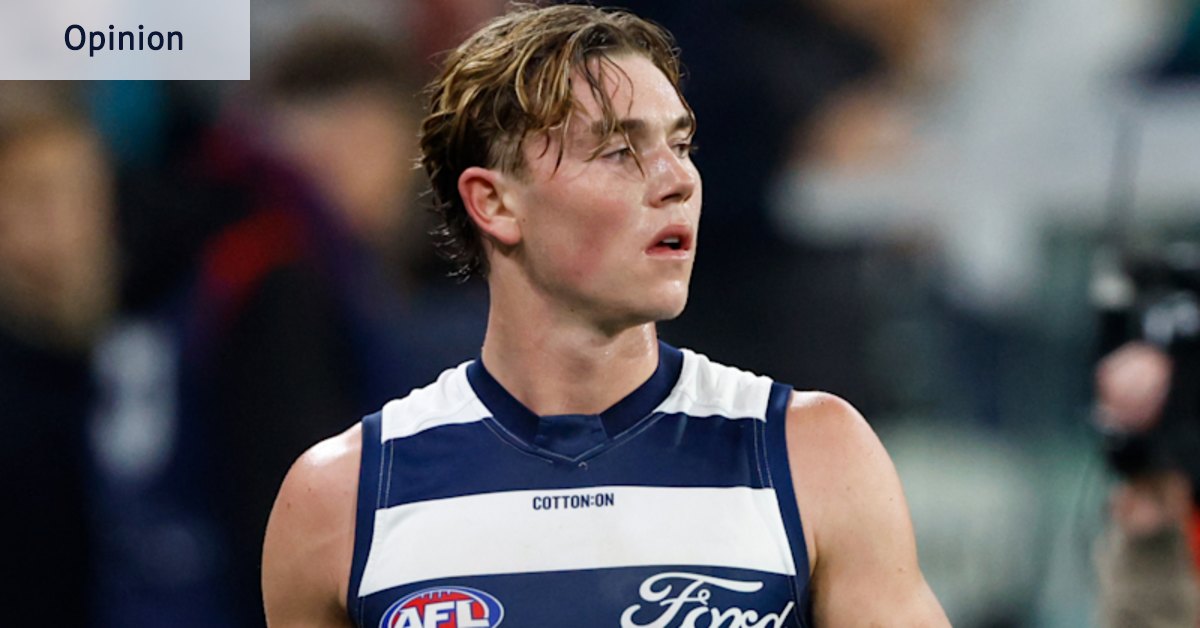Loading
The police had charged Bruhn with multiple counts of sexual assault including rape. Those charges were the trigger for the AFL to stand the footballer down from playing AFL or VFL football.
The AFL, unlike the NRL, does not have a mandatory stand-down policy. Under rugby league’s policy, a player charged with any offence that could draw an 11-year jail term if convicted, is automatically stood down from playing. Players facing lesser charges can also be stood down at the CEO’s discretion.
The AFL’s policy is more nuanced – or random depending on your perspective – and considers matters on a case-by-case basis rather than applying a fixed threshold. It was also complicated by the order suppressing Bruhn’s identity. Was standing him down necessary if no one – theoretically – knew who he was, or could legally report he was facing charges?
Both sporting bodies, like other employers who sack or suspend people on criminal charges, insist they are not waiving the players’ presumption of innocence, even if their actions can give rise to that impression. They argue it is inappropriate for a person on charges to represent them.
Loading
Neither the AFL’s policy, nor the NRL’s, qualitatively assess the evidence against a player. It is the fact of a charge that matters. It is the weightiness of the charge, not the weight of evidence, that determines whether the player is stood down.
A stand-down policy is not about jurisprudence, it is about real-world realities and perceptions. The sporting body is judging public opinion and considering the reputation damage to the sport.
The sporting body is seeking to avoid the jarring inappropriateness of a player charged with grave offences, particularly violent offences against women, being celebrated and applauded on the field for playing sport and representing a club and a league.
The AFL players’ union, the AFLPA, accused the league of acting prematurely in standing Bruhn down. Presumably the alternatives were that he not be stood down until after a trial, which if convicted would become moot as he would have faced jail time. Or presumably not stood down until after a committal hearing. In light of the charges being withdrawn during the committal hearing this week, this is a hard point to argue with.
However, as of December 28 this year there will be a significant change to the system in Victoria. Alleged victims and witnesses in serious sexual offence cases will no longer be cross-examined at that stage of the process – it is the end of committal hearings as we know them. The idea of standing someone down until after a committal is removed.
That means – in Victoria at least – that the league either doesn’t stand down a player accused of rape, or do, as the AFL did here, upon charges being laid.
There is little in between.
The laying of charges has been considered the trigger for standing a player down because there has ordinarily been significant rigour applied to considering the evidence before the police and Department of Public Prosecutions lawyers agree to charge. Charges are only brought if it is believed there is a reasonable prospect of conviction.
Clearly Bruhn and Sinnott were cleared because the evidence was flawed and a witness admitted he lied. The police and DPP must now answer for how the case got to this point.
Loading
The criticism that the AFL’s decision to stand Bruhn down was a disproportionate response is a moment of anger searching for an adjective.
If it is agreed a stand-down policy is legitimate for a sporting body to enforce – and it is perfectly open to argue it is not – then what level of charge would a stand-down be appropriate for if not for a rape charge? Is murder or manslaughter – when a player is probably on remand anyway – the only appropriate moment for standing a player down?
The AFL’s handling this year of Noah Balta’s case has been highlighted as a contrast to Bruhn. It was quite different, not even in the same ballpark of criminality. Yet Richmond’s Balta still should not have been allowed to play early this year.
Balta was accused of a drunken assault outside a pub that put a man in hospital. He should have been suspended because he had pleaded guilty to his charge and was awaiting sentencing. That stand-down should have formed part of an AFL ban as punishment.
Balta served a club suspension – agreed with the AFL – and returned to play a game before sentencing. The court then imposed a nighttime curfew and alcohol ban as part of his noncustodial sentence but at no stage did he risk a long (more than a year) jail term. Bruhn faced a long jail sentence had he been convicted of the charges brought against him.
Had the AFL not stood Bruhn down and he played all year, even with a suppression order in place, and then was committed to stand trial, would that feel like a league in touch with community sentiment?
In a sport of winners and losers, there are no winners here.
Keep up to date with the best AFL coverage in the country. Sign up for the Real Footy newsletter.

